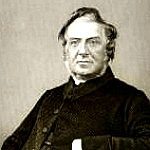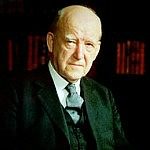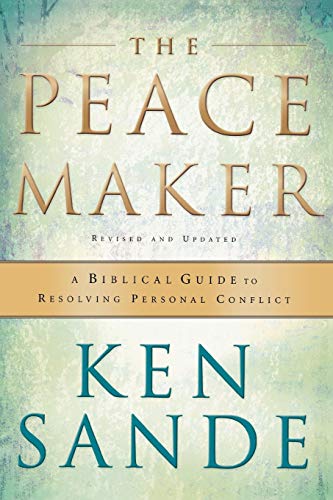Quotes about Conflict-Doctrine
[We must have] the ability to distinguish issues that truly matter from ones that do not. We do not want to be flexible about moral and theological convictions (the great doctrines of the church). But it is also wrong to be brittle about issues that are not foundational to our faith.
I fear that all too often Christians may be less humane and considerate than nonbelievers. We think we are standing on principle when in reality we may be only insisting on our opinion.
The Practice of Godliness, NavPress, 1996, p. 187. Used by permission of NavPress – www.navpress.com. All rights reserved. Get this book!
Articles or rules for doctrine or practice in matters of religion to be imposed upon men, should be as few as may be; there is very great danger in the unnecessary multiplying them. This in all ages has caused division and exceeding disturbances in the churches of Christ.
A Puritan Golden Treasury, compiled by I.D.E. Thomas, by permission of Banner of Truth, Carlisle, PA. 2000, p. 303.
When divisions are rife in religion, it is bound to happen that what is in men’s minds will soon erupt in real conflict. For while nothing is more effective for joining us together, and there is nothing which does more to unite our minds, and keep them peaceful, than agreement in religion, yet if disagreement has somehow arisen in connection with it, the inevitable result is that men are quickly stirred up to engage in fighting, and there is no other field with fiercer disputes
As men are more proud of their understanding than of their disposition, it is very probable that religious opinions are more frequently the cause of conceit and self-importance, than anything else which could be mentioned.
“Schism” – People who were agreed about the centralities of the faith dividing and separating from one another over matters that were not essential to salvation, not absolutely vital. This is always one of the dangers afflicting us as evangelicals… We can be so rigid, so over-strict, and so narrow that we become guilty of schism.
We must be very careful to draw this distinction between essentials and non-essentials lest we become guilty of schism and begin to rend the body of Christ.
In matters in which Scripture is not explicit there is room for difference of opinion.
Believers must never, of course, compromise doctrines or principles that are clearly biblical. But to humbly defer to one another on secondary issues is a mark of spiritual strength, not weakness. It is a mark of maturity and love that God highly honors, because it promotes and preserves harmony in His church.
First level theological issues would include those doctrines most central and essential to the Christian faith… Denial of these doctrines represents nothing less than an eventual denial of Christianity itself… The set of second-order doctrines is distinguished from the first-order set by the fact that believing Christians may disagree on the second-order issues, though this disagreement will create significant boundaries between believers… Third-order issues are doctrines over which Christians may disagree and remain in close fellowship, even within local congregations. I would put most debates over eschatology, for example, in this category… Christians should never separate from a church over third-order issues.
Should I Stay or Should I Go? September 2009, Tabletalk, p. 20-21. Used by Permission.
And I am afraid there are Calvinists, who, while they account it a proof of their humility that they are willing in words to debase the creature, and to give all the glory of salvation to the Lord, yet know not what manner of spirit they are of. Whatever it be that makes us trust in ourselves that we are comparatively wise or good, so as to treat those with contempt who do not subscribe to our doctrines, or follow our party, is a proof and fruit of a self-righteous spirit. Self-righteousness can feed upon doctrines, as well as upon works; and a man may have the heart of a Pharisee, while his head is stored with orthodox notions of the unworthiness of the creature and the riches of free grace.
The religious flesh relishes theology, because it requires no death of ego, no surrender of control, no apologies. Theological disputation can feed a spirit of superiority. But because it’s about truth and right, our smugness can go undiscerned.
We should teach and demonstrate that secondary matters should never be allowed to divide Christians… We should take the lead by always asking first, “What do the Scriptures say?” If they are not dogmatic, then we should not be (Derek Prime and Alistair Begg).
On Being a Pastor, Moody Press, 2004, p. 292. Get this book!
Theological Triage: Christians divide from non-Christians over primary doctrines, and Christians are willing to die for these doctrines. Churches distinguish themselves from one another over secondary doctrines, yet they partner together around primary doctrines. Christians in the same church disagree with one another over tertiary doctrines, but it does not in any way decrease the intimacy of their fellowship with one another.
It is a thousand pities when these differences become the occasion of alienating brethren from one another. This can happen all too easily when we ride roughshod over one another in discussion, debate and conversation. It can happen, too, when doubtful opinions are reckoned as dogmas and minor matters contended for as if the very life of the gospel depended on them.
We give our hand to every man that loves the Lord Jesus Christ, be he what he may or who he may. The doctrine of election, like the great act of election itself, is intended to divide, not between Israel and Israel, but between Israel and the Egyptians, not between saint and saint, but between saints and children of the world. A man may be evidently of God’s chosen family, and yet though elected, may not believe in the doctrine of election. I hold that there are many savingly called, who do not believe in effectual calling, and that there are a great many who persevere to the end, who do not believe the doctrine of final perseverance. We do hope the hearts of many are a great deal better than their heads. We do not set their fallacies down to any willful opposition to the truth as it is in Jesus but simply to an error in their judgments, which we pray God to correct. We hope that if they think us mistaken too, they will reciprocate the same Christian courtesy; and when we meet around the cross, we hope that we shall ever feel that we are one in Christ Jesus.
We believe in the five great points commonly known as Calvinistic; but we do not regard these five points as being barbed shafts which we are to thrust between the ribs of our fellow-Christians. We look upon them as being five great lamps which help to irradiate the cross; or, rather, five bright emanations springing from the glorious covenant of our Triune God, and illustrating the great doctrines of Jesus crucified.
Not all doctrines are equally important. They are equally true, but not all truth is equally important. It isn’t a matter of some doctrines being “more true” than others, as if some doctrines are partially false. It is rather that some doctrines bear less impact than others on our capacity to know, love, and obey God.
Authority and Method in Theology, November 8, 2006, www.enjoyinggodministries.com. Used by Permission.
One of the great lessons of church history is that God has used theological controversy to corporately sanctify His church as each Christian “contends earnestly for the faith once delivered to the saints” (Jude 3). Many crucial doctrines have been clarified and purified through respectful debate in the hermeneutical context of the universal church. Indeed, this is the very reason why God allowed controversy in the church at Corinth: “For there must also be factions (opinions) among you, so that those who are approved may become evident among you” (1 Cor. 11:19). Yet to avoid the disunity of the Corinthian church, we must handle our opinions with abundant humility and grace.
The Sufficiency of Scripture: By What Standard? April 3, 2003, www.visionforumministries.org, Used by Permission.
Unity is not found in uniformity of thought, but in the fellowship of the Spirit, based on sound doctrine which, in turn, is predicated on the clear teaching of Scripture. This is why Paul exhorts us to “mark them which cause divisions and offenses contrary to the doctrine which ye have learned; and avoid them” (Rom 16:17). The false prophets call for unity based not on Scriptural doctrine, but on their [the false prophets] claim for authority. Those who insist on fellowship based on sound doctrine are labeled legalists, while the false prophets are the ones imposing unscriptural demands upon those who follow them.
Media Spotlight Special Report, Latter-Day Prophets: The Restoration of Apostles and Prophets and the Kansas City-Vineyard Connection, September, 1990, p. 14.
















